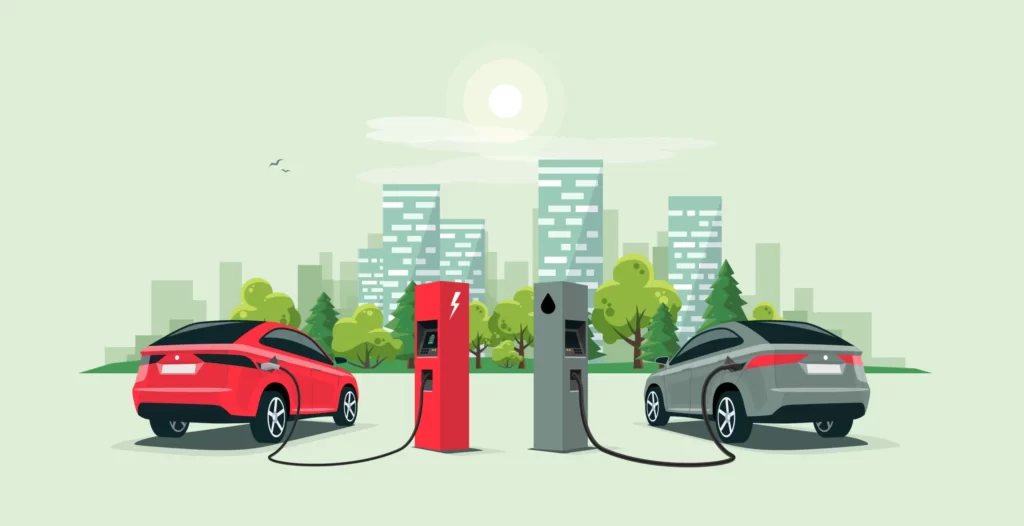Comparing Electric Vehicles to Gas-Driven Vehicles
Electric vehicles, or e-vehicles as they are sometimes called, have been around for quite some time. They have many benefits over their gas-driven counterparts, such as lower operating costs, no tailpipe emissions, and more efficient engine output. However, in the current electric vehicle market, a few cons still need to be considered when purchasing one.
Comparing Electric Vehicles to Gas-Driven Vehicles

Gas Vehicle Speed Pros and Cons
One of the main advantages of gas-driven vehicles is their speed. Gas-driven cars can reach up to 200 mph speeds, whereas electric vehicles are limited to a top speed of around 100 mph. This is because electric cars have to spend time recharging their batteries, so they cannot reach their maximum speed as quickly as gas-driven vehicles.
Cost and Maintenance
Another disadvantage of electric vehicles is the cost and maintenance. An electric car has many more parts than a gas-driven vehicle, so there is a higher chance of needing repair or replacement. However, the lower operating costs can offset the cost and maintenance.
It’s worth noting that there are also other costs to consider when deciding whether to purchase an electric vehicle. There are a few different methods for claiming the electric vehicle tax credit.
Range and Charge Time
Another disadvantage of electric vehicles is the range and charge time. Gas-driven cars have a more extended range and can be recharged almost instantly, whereas electric vehicles need to be set for hours before reaching their maximum speed again.
On average, gas-driven vehicles can travel between 300 miles and 650 miles per tank, whereas an electric car can only travel between 100 miles and 400 miles on one tank.
Vehicle Stability and Handling
Electric vehicles are not as stable and handle gas-driven vehicles well. Electric cars have a lower weight, making them more prone to tipping over and crashing. Gas-driven cars are built with a suspension that helps them handle well and stay steady, but electric cars do not have this feature.
Range and Speed Convenience
- Another disadvantage of electric vehicles is limited speed and range. Gas-driven cars can reach up to 200mph speeds, whereas electric vehicles are limited to a top speed of around 100mph. This is because electric cars have to spend time recharging their batteries, so they cannot reach their maximum speed as quickly as gas-driven vehicles.
Electric Vehicle Costs
Electric vehicles have a higher initial cost than gas-driven ones but are more affordable over time. The initial price of electric cars is higher because of the equipment and parts that must be added. Gas-driven vehicles are more affordable because they have smaller operating costs and less expensive components and maintenance, but this does not make up for the initial cost.
Environmental Impact
Electric vehicles have been known to have an environmental impact because they are more expensive to run and produce more carbon dioxide pollution than gas-driven vehicles.
Gas-driven vehicles have an environmental impact because they are less efficient, but this is not true with electric cars. Electric vehicles have to use more energy to produce the same amount of power.
Electric Vehicles Are Safer than Gas-Driven Vehicles
Electric vehicle drivers have a lower chance of being involved in an accident or a fatal accident than car drivers driving gas-driven cars. Electric vehicles do not include gasoline or other fuels that can cause a car accident, so there is no risk of being involved in an accident caused by an explosion or explosion from the fuel tank.
Gas-driven cars can cause accidents if their fuel tanks explode. Still, if they do so, it will be the fuel inside them that drives the explosion, not any problems with the car itself, like battery problems or mechanical problems with the engine.
Electric vehicles are not as well-known as gas-driven vehicles. However, they have advantages over gas-driven cars, such as lower maintenance costs, longer battery life, and faster charging speeds. They are also safer than gas-driven vehicles because they don’t involve using gasoline or other fuels that can cause a car accident. Electric vehicle drivers have a lower chance of being involved in an accident or a fatal accident than car drivers driving gas-driven cars.

















